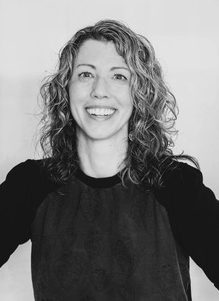Ask a Lit Mag Editor with Gabriela Denise Frank

Join literary artist, Gabriela Denise Frank, for a free one-hour Q&A. Gabriela will offer some tips, tricks, and advice from the world of literary magazines. Come to the call with questions about your own works-in-progress or other inquiries for a lit mag editor.
Gabriela Denise Frank
Gabriela Denise Frank is a Pacific Northwest writer, editor, and creative writing instructor. Her essays, interviews, and fiction, explore identity, feminism, aging, belonging, creative practice, and ancestors. Her work appears in True Story, HAD, Poetry Northwest, Pembroke, DIAGRAM, Hunger Mountain, Bayou, Baltimore Review, The Normal School, The Rumpus, and elsewhere. Her essay “BAD DATE” was named a Notable Essay of 2020 by Best American Essays. Gabriela’s work is supported by grants, fellowships, and residencies from 4Culture, Artist Trust, The Civita Institute, Centrum, Invoking the Pause, Jack Straw Cultural Center, Marble House, Mineral School, Vermont Studio Center, and Willapa Bay. In 2009, she enrolled in her first Hugo House class, which reignited her writing life. Off the page, her literary art installations and performances transform stories into multisensory experiences. Her writing is rooted in place and landscape, a result of her career in architecture and urban design in the western United States. An advocate for public arts and artists, she serves as an arts commissioner for the City of Burien, on the arts advisory committee of 4Culture, and as creative nonfiction editor for Crab Creek Review. For more information go to gabrieladenisefrank.com.
Instagram: https://www.instagram.com/civitaveritas/
Twitter: https://twitter.com/CivitaVeritas
